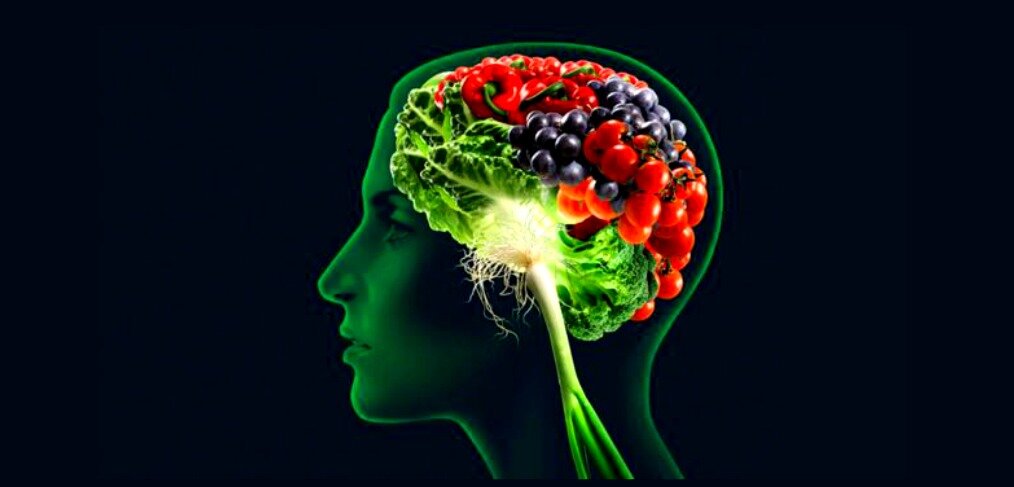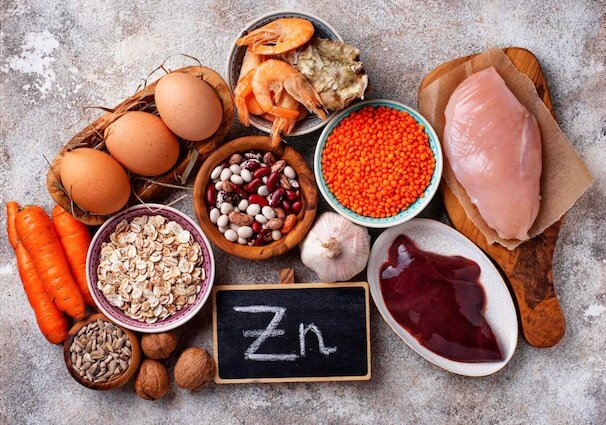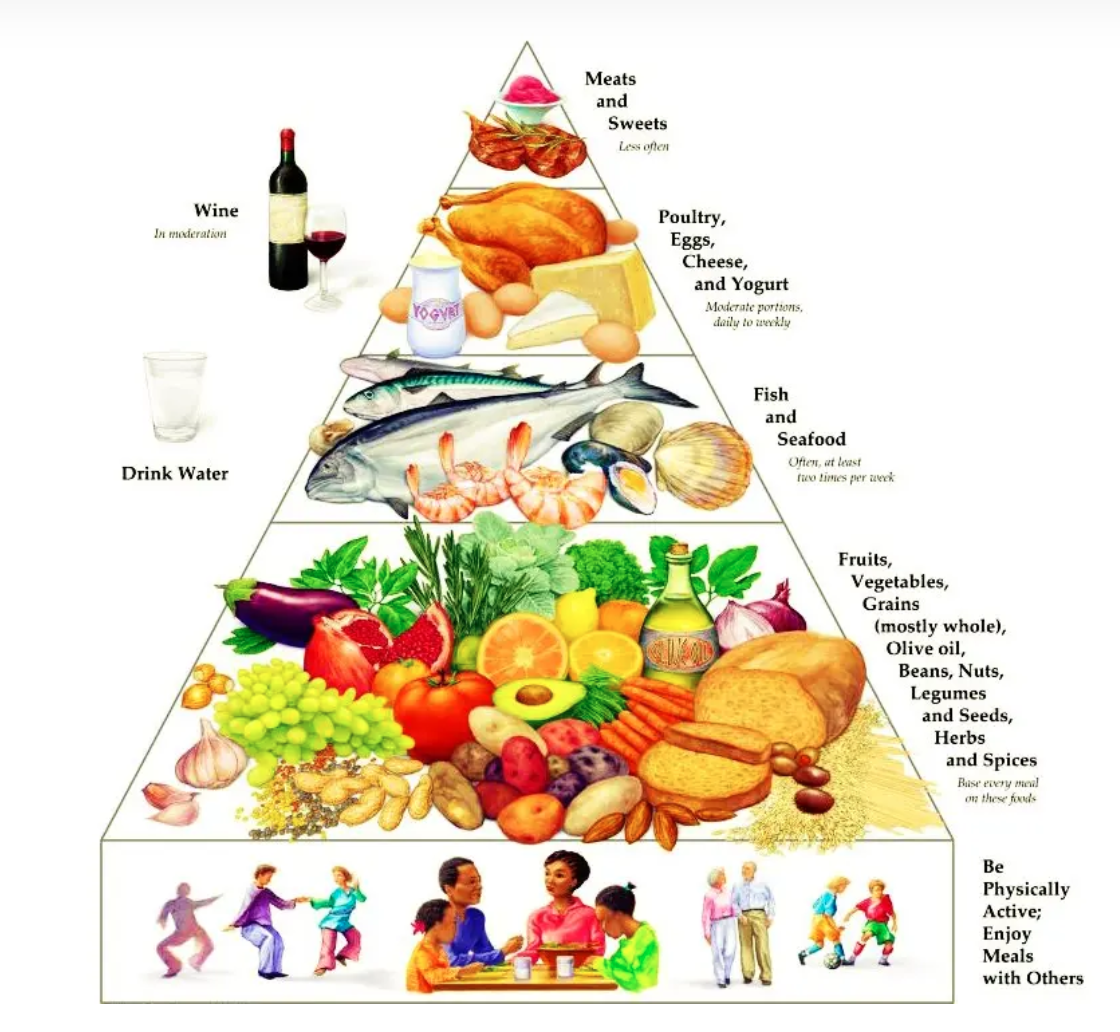Does food affect our Mental Health?
Mental health is clearly just as important as our physical health, yet is unseen and can be so difficult to manage, it can affect every aspect of our daily lives, be it social, work, relationships, motivation, confidence, and self-esteem.
Symptoms of mental health struggles are many and varied and include the following and others:
-
Mood Swings - sudden anger, sudden elation
-
Low Mood - negative thoughts
-
Irrational Thinking
-
Panic Attacks
-
Anxiety - worrying
-
Low self-worth
-
Overthinking, ruminating thoughts
-
Impulsive Behaviour
-
Lack of Hope
-
Low motivation
-
Overwhelming sadness (in the absence of any recent emotional trauma)
We can all experience any of the above feelings at different times but we hope they are not long-lasting and will pass. There are many reasons for varying mental health, but in this article, we are focussing on the physical mechanism of food, how it affects the body and the brain, and with it, one's mood.

THE GUT BRAIN AXIS
It’s no surprise that our brain sends signals to our gut to control digestion and other tasks. The brain sends its orders via the vagus (VAY-Gus) nerve. This long structure wanders from the very base of the brain down to the gut. Your gut is wired to the brain through this nerve and it’s the vagus nerve that is the primary 2-way channel of communication specifically for mood. But the gut doesn’t just listen, it also talks back via the gut-brain axis.
Bacteria and enzymes inside our gut help break down food. The waste products produced by the fermentation of these bacteria actually act as chemical messengers - neurotransmitters.
The bacteria both produce and respond to neurotransmitters, including dopamine which is the feel-good hormone, serotonin, and GABA – the calming, content hormones, all of which have antidepressant effects on the brain. Remarkably 400x more serotonin is found in the gut than in the brain.!
Scientists have realised that listening to the cross-talk between the gut-brain axis is transforming our understanding of mental health and that it’s not just all in the brain.
Exactly what the messages say depends on who’s sending them. A gut filled with fruits and vegetables will house a different set of microbes than one used to a diet of fried food, sugar, low fibre & fizzy drinks. The messages sent by those different sets of gut microbes may affect our brains differently, this gives us yet more proof for the saying 'You are what you eat'.
Research coming from Cork University where they fed different diets to two groups of rats, found different levels of cortisol (the stress hormone) with the high sugar diet group providing higher levels of cortisol than the group with a high fibre diet.
That’s not really a surprise, but it is pretty amazing evidence to show sugar really can stress us out!. This is Dietary Stress.

Also in human studies, where for example a group of healthy women who ate fermented foods daily for four weeks showed positive changes in brain activity, specifically the parts of the brain that control emotion and sensation, indicate that a thriving microbiome curbs anxiety and improves your mood.
VITAMIN DEFICIENCIES
Certain vitamin deficiencies can contribute to a low mood also and this can be as a result of poor diet, high stress leading to poor digestion, leading to poor absorption of vital nutrients, or just not getting enough sunshine.
Vitamin B12 and folate are essential partners in creating the building blocks for neurotransmitters – serotonin, dopamine, and other feel-good hormones. I had a client who had been suffering from depression and anxiety, was taking anti-depressants with no improvement. When their B12 levels were tested it was clear what was the cause, after 12 weeks of B12 injections their depression and anxiety were lifted and they were back to their old self. (I know that may sound very simplistic, but it is actually what happened).
-
Vitamin B12 can only be found in bio-available forms for the body in animal foods, eggs, meat, dairy, fish, and poultry, so supplementation is essential if those foods are not in the diet.
-
It is wise to see why a person is low in B12 if they are eating B12 foods, coeliac disease, digestive problems or genes can contribute to malabsorption where your body isn’t absorbing vital nutrients like B12.
-
People with a low folate level have only a 7 percent positive response to treatment with antidepressants. Those with high folate levels have a positive response of 44 percent.
-
Folate is found in many foods including leafy greens, broccoli, spinach, kale, cabbage, asparagus, beans, lentils, eggs.

THE HAPPY SUNSHINE HORMONE
The sunshine vitamin D is not a vitamin but is actually a hormone that can affect our mood. Symptoms of SAD - (seasonal affective disorder), coincide with a reduction in vitamin D3, which in turn affects serotonin levels in the brain.
Not only is it good for the gut – by helping to regulate the good bacteria in the microbiome, it also helps our mental health, so maybe it does this indirectly by affecting the neurotransmitter production in the gut?.
-
Vitamin D activates genes that release neurotransmitters (such as dopamine and serotonin).
-
Low levels of Vitamin D are linked to a 14 percent increase in depression and a 50 percent increase in suicide rates, epidemiological studies in many countries have found suicide rates to be highest in spring when vitamin d levels would naturally be lowest after a long dark winter.
-
In the northern hemisphere where there is limited sunshine for 6 months of the year, it is necessary to supplement with Vitamin D3 (with K2), this enables calcium to be absorbed into the bones where it is needed.

ZINC
Zinc is found in good amounts in these foods above and zinc is an essential player in mental health. Zinc deficiency has been found to be linked with depression, ADHD, learning and memory difficulties.
Other sources of zinc are green leafy vegetables, red meat, Brazil nuts, oats, and oysters. (Beans and lentils are sources of zinc but if the dry beans and pulses are not soaked to rid them of specific ‘phytates’, which can stop the absorption of zinc and b vitamins, they prove to be a poor provider of minerals and vitamins.
IT’S NEVER JUST ONE THING…
So a combination of good gut flora provided by a diverse diet, low stress or an ability to handle stress, and very specific nutrients, all go towards a healthy mental state and good brain function.
THINGS TO TRY;
-
Increase vegetables - as diverse as you can, all colours and variety in every meal. If there are picky eaters, smuggle vegetables into stews, curries, soups, lasagnas, bolognese and smoothies.
- Fermented foods - these have probiotic qualities, the bacteria in fermented foods help inoculate the microbiome of the gut enabling more beneficial bacteria to flourish and hopefully crowd out the not so helpful bacteria - try kimchi, kefir, sauerkraut, live-cultured yoghurt, fermented vegetables, miso, kombucha (but caution to be taken, if there are a lot of histamine allergies present as kombucha itself is high in histamine). Start slowly with these foods and build up gradually.
-
Exercise - you don’t have to run a marathon, a 30minute brisk walk per day with a smile on your face will do it, see who will smile back.
-
Reduce or remove fizzy drinks, caffeine, high sugar “treats”, treat yourself to ‘better for you’ healthy treats. Smoothies, fruits, nuts, are all foods your body will thank you for.
-
Reduce alcohol - lets face it, nobody wakes up after a bottle of wine saying, '‘mmm that was lovely, I feel fantastic'‘
-
Journalling - writing out your worries, fears, and anxieties can help get these thoughts out of your head onto paper
-
Sleep - so important to get restful sleep, Epsom salts bath before bed with its natural magnesium and sulfur will help to relax you and enable good sleep.
-
Singing - you don’t have to be Beyonce, singing tones our Vaygus nerve which signals our brain from the gut, this encourages our para-sympathetic nervous system to help us feel calm. Sing your heart out, who cares who’s listening.
-
Grateful reflection, write down 3 things that went well at the end of every day. These can be the tiniest things, but it helps focus appreciation on the smaller or larger things that we may have missed.
-
Chat to the waitress in the cafe, seek out a positive friend for a phone call, sometimes small talk at the school gate or water cooler can be the one thing to get you through a bad day.
-
Breath work - deep breathing helps lower cortisol, brings things into focus, helps us manage overthinking, try breathing in for 4 counts, hold for 4 counts and breathe out for 5 & repeat ( key to calming one’s mind is repetition).
-
Meditation - It takes work though and doesn’t suit everyone, a spoken guided meditation is probably better for beginners, here’s a good starting point

